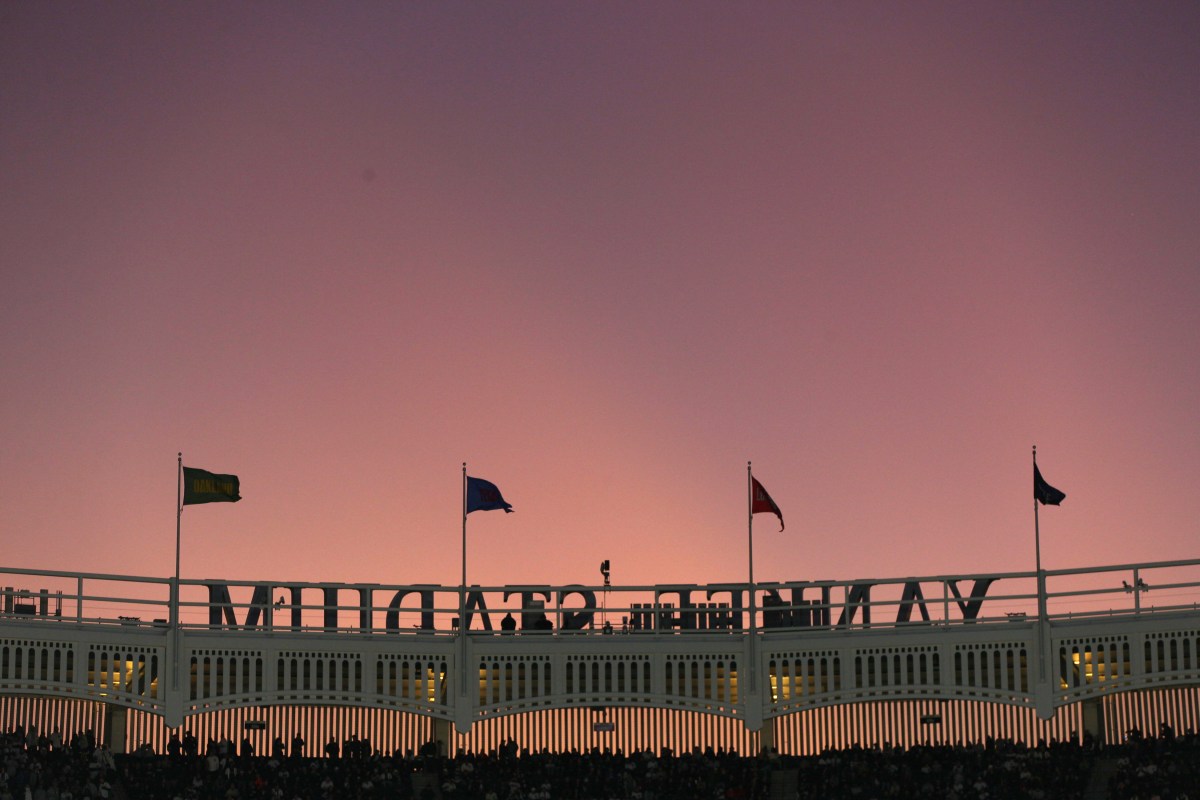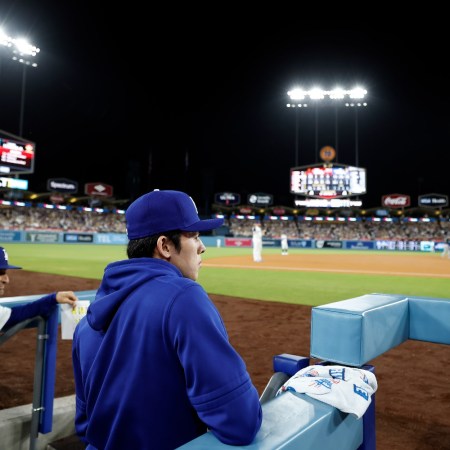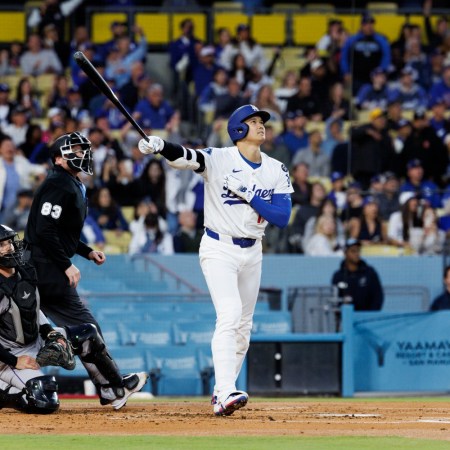The last time the New York Yankees finished a season under .500 was 1992. That’s an astonishing run of sustained excellence; the next-longest streak belongs to the St. Louis Cardinals, who haven’t had a losing season since 2008. That’s impressive, but they’d have to win 81 games or more until the year 2036 to match what the Yankees have done over these last 30 years.
By all accounts, yes, it’s been a special 30 years in the Bronx. Seven pennants, five World Series rings, a half-dozen Hall of Fame players passing through, a new $2.3 billion stadium (at the time, the most expensive ever built), attendance figures among the top three teams in the league year in and year out, the creation of a behemoth regional sports network, and a $7 billion valuation — topped only by the Dallas Cowboys throughout all of professional sports.
And yet, Yankee fandom feels somewhat confused these days. Despite whatever was happening behind the scenes in order to create a bigger, better business towards the close of the 20th century, the dialogue from the front office to the public (re: late owner George Steinbrenner addressing rabid Yankeeland) was always blissfully simple. World Series or bust, whatever the cost. Dollars don’t matter, feelings definitely don’t matter. Whatever it takes to raise another banner.
But the ballclub has raised exactly one banner in the last 13 years, and even that title came after a seven-season drought. In the twilight of the Core Four years, Derek Jeter’s Yankees did lose a slew of playoff series in creative ways; but that trend has only metastasized in the Baby Bomber era. Aaron Judge’s Yankees have lost, in order, the 2017 ALCS, the 2018 ALDS, the 2019 ALCS, the 2020 ALDS, the 2021 Wild Card Game and the 2022 ALCS.
It’s extremely difficult to pinpoint why, exactly, the Yankees have lost all these series, but here are the theories you’re most likely to find bandied about on Evil Empire Twitter: righty-heavy lineup construction, lackluster play from superstars when it matters most, Aaron Boone, relying way too much on the home run, Hal Steinbrenner being nothing like his dad, injury-ridden bullpen units, the Houston Astros, the Houston Astros and their goddamned garbage bins, the shift, the luxury tax, bad luck, quick hooks on quality starters, bloop singles to shallow outfield, and of course, the team’s general manager and senior vice president since the spring of 1998…Brian McGuire Cashman.
All of the above are relevant, some more than others, but perhaps it’s time — as the Yankees process this year’s 4-0 drubbing at the hands of the Houston Astros, the franchise’s lowest low in modern memory — to think a little outside the box. Perhaps the Yankees have lost for so long because they’ve won for so long. Winning seasons generate revenue and goodwill; even an organization that frames any season without a World Series win as “meaningless” can earn a bit of leeway after a 100-win campaign, assuming they frame it correctly. Think: “The boys fought hard, we’ll add some pieces and we’ll be back next year,” etc. Hope springs eternal. And when they’re this good, it’s hard to argue with them. But then another season goes by, and another, and — you get the point.
If the World Series is actually the top of the priority list, there is value to be had in a losing season. Look at the past five World Series winners: Atlanta Braves, Los Angeles Dodgers, Washington Nationals, Boston Red Sox, Houston Astros. The Braves had four years of losing seasons before their recent run, winning the World Series on their fourth try. The Nationals won only 82 games the year before they took the title home. The Red Sox have played a game of divisional seesaw for years; in 2013, they won the World Series the year after finishing last in the AL East; and in 2018, they won it again (plus 108 games in the regular season) after back-to-back cellar finishes just a couple years before.
Meanwhile, this remarkable Astros run (six straight ALCS, the title in 2017), came off three straight 100-loss seasons from 2011 to 2013, while people may forget that before the Dodgers entered their era of dominance, they limped to a fourth-place ending in 2010.
Winning the World Series is really difficult. Baseball is a silly, random game, which more or less needs to be played for 75% of the calendar year in order for trends to turn into truths. Playoff baseball does a poor job of honoring those truths, which is why it’s so exciting. Superstars slump, heroes emerge from nowhere, balls have a spooky habit of finding empty patches of grass, stadiums shake accordingly. It’s important to note that the Astros and Dodgers, the class of the American League and the National League, respectively, have the least legitimate titles of the 21st century — one a crown for cheaters, one for a shortened COVID season.
From that perspective, Yankee fans should recognize that this recent spat of playoff heartbreak is common, and, at some point in time, another ring is inevitable. But it’s also fair to wonder if the ballclub’s winning ways have hamstrung its potential, limiting it to a team just good enough to stay relevant…until the locker room packs for the winter yet again. Does anything feels different this time around? Well, Boone may have lost his post, for starters. And more significantly, the long-untouchable Cashman, handpicked by the previous Steinbrenner — by all accounts, a close working friend of the current one — may have run out of leash.
It isn’t so sacrilegious anymore to suggest that Hal Steinbrenner isn’t hellbent on a 28th ring. In any other industry, by any other standard, he is the shrewd and careful owner of a globally recognizable entertainment company. But the expectation outlined by his father (and repeated, ad nauseam, by his father’s best foot soldiers, like Jeter), always exclaimed that this operation had a point to it, a mission beyond balancing the bottom line.
If that were actually the case, though, why hasn’t Steinbrenner exhausted every option? Why has the richest team in baseball gotten into a habit of ignoring star-studded free agent classes? Why are promising prospects left to pile up micro-careers in the baseball purgatory of Scranton, the organization’s Triple A affiliate? Why has the front office administration’s key personnel hardly changed since the mid-aughts?
It’s because the Yankees have been winning games, just not the right ones. That’s not to say they should go out there and tank their way to over 100 losses (though, let’s be clear, that strategy clearly works), but rather to emphasize that for a long time, the Yankees have been the mediocre slice of an elite pie…just happy to be in the box. If most Yankees fans were named GM for this offseason, they’d probably go Full George — fire Boone, bring back Judge for $350 million and make him captain, sign multiple big arms, give a top prospect like Anthony Volpe the chance to start at shortstop (as the Astros did with Jeremy Pena…who just won ALCS MVP) and send Josh Donaldson on the next Bezos bus to outer space.
No Yankees fan wants to see the team fall into irrelevancy, even for a summer. It’s likely the organization wouldn’t even know how to. But there are only two ways forward: lose (like really lose) or change. It’s nice to imagine Opening Day 2023 with the Yankees either all-in for the first time in a long time, or handing the keys to its kids, with a bunch of new names lining up around the field — but it’s so much easier to picture them in October 2023, a beleaguered core, an embattled front office, first in the division over the regular season, but first once again to leave the big dance.
The Charge will help you move better, think clearer and stay in the game longer. Subscribe to our wellness newsletter today.



















